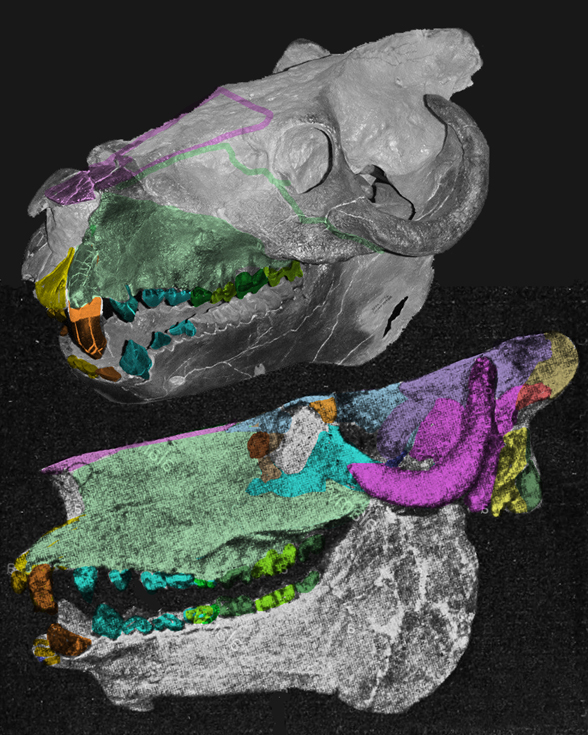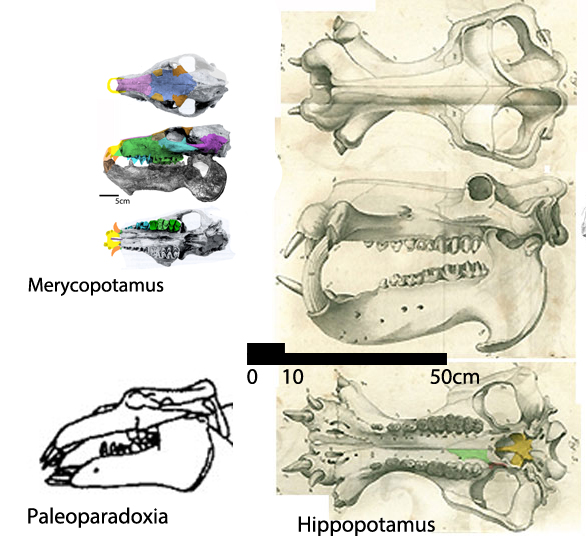According to Wikipedia – Promerycochoerus:
“Promerycochoerus (“Before Merycochoerus” or “Before Ruminating Hog”) is an extinct genus of hippopotamus-like oreodont artiodactyl that lived in Central North America during the Early Miocene. The 1 m (3 ft 4 in) long creature is thought to have been amphibious, as all species possessed an elongated, barrel-shaped body and short limbs that are typical adaptations found in semi-aquatic mammals. P. superbus had a long tapir-like face, while P. carrikeri had a short, somewhat pig-like face.”

Figure 1. Early Miocene Promerycochoerus is now a hippo in the LRT, no longer an oreodont. Two specimens are shown.
After re-scoring this taxon,
Promerycochoerus is now a hippo, not an oredont in the large reptile tree (LRT, 2320 taxa). Those bowl-shaped cheekbones are a shared trait. Here the upper canine can be larger than the lower, the opposite of Hippopotamus (Fig 2).
It always seemed different than other oredoonts. Now that problem is resolved.

Figure 2. Merycopotamus, Hippopotamus, and Paleoparadoxia compared to scale. The latter is a desmostylian, derived from hippos.
Promerycochoerus macrostegus
(Leidy 1858; Early Miocene 22mya; 1m) is a small traditional oreodont from North America. It nests with hippos in the LRT. Note the bowl-shaped cheekbones, a shared trait. Several species are known. Hippos are not far from oredonts and mesonychids, their ancestors in the LRT, so not many scores had to change.
References
Leidy J 1858. Notice of remains of extinct vertebrata, from the Valley of the Niobrara river collected during the exploring expedition of 1857, in Nebraska, under the command of Lieut. G K Warren, U. S. Top. Eng., by Dr. F.V. Hayden, Geologist to the expedition. Proceedings of the Academy of Natural Sciences of Philadelphia 1857: 20-29.
